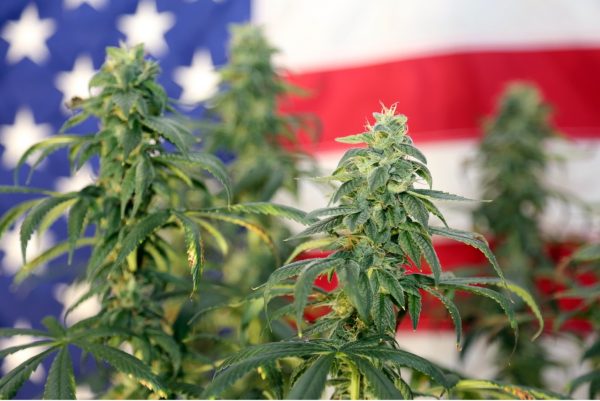The federal government still considers cannabis illegal, but has been loyally tolerant since 2014 when US citizens deal with it. Nevertheless, immigrants still face many consequences, including denial of citizenship, a lifetime ban on permanent legal residency, and even deportation – Politico reports.
It is difficult to estimate the number of legal immigrants who may be affected by this policy. Meanwhile, advocates and US senators in states where cannabis is legal have sought help from President Joe Biden, who has at times shown a more tolerant attitude towards cannabis.
In October 2022, Biden issued an executive order pardoning citizens federally convicted of simple cannabis possession and directed agencies to review how cannabis is classified. And as early as August, the Department of Health and Human Services recommended that cannabis be moved from Schedule I, which is classified as a highly addictive drug with no medical value, to Schedule III, a category with less potential for abuse.
But under the Biden administration, the Department of Homeland Security has not changed the way it handles cannabis immigration cases, leaving vulnerable immigrant workers unable to naturalise or get a green card and fearing they could be deported because of their livelihood.
Mainly, it is the denial of citizenship or lawful permanent residency for working legally with marijuana. It turns out that interpreting one law for two segments of the population establishes a stark inequality: bosses and fellow Americans are part of a thriving industry, while immigrants are labelled criminals.
“No civil or criminal penalties for ‘drug trafficking’ fall on the executives of these [cannabis] corporations, or even any of the US citizen employees; the only enforcement targets are immigrant workers,” wrote the Immigrant Legal Resource Center in an October 2022 call to action responding to Biden’s pardons.
For example, the case of Maria Reimers, who tried to do everything by the book. She entered the United States legally, married an American citizen and obtained a green card to work. Together with her husband, she managed to open a small shop in Ephrata, a small town in Washington State. But when Reimers tried to obtain US citizenship in 2017, she was denied because she lacked “good moral character.” Federal immigration authorities deemed her work “illegal drug trafficking” because the couple’s business in Ephrata sells state-regulated cannabis. Meanwhile, the Reimers sued US Citizenship and Immigration Services over Maria’s rejection, but several rejections followed and the case has yet to be heard.
Alicia Moss, the Reimers’ attorney, says they face an uphill battle in their appeal to the Supreme Court. To prove that Reimers was unduly harmed, the appeals court ruled that she must provide an example of a foreign-born worker obtaining citizenship in legal cannabis to show why her denial should be overturned.
The Immigrant Legal Resource Centre has been calling for years for DHS to exclude legalised cannabis from the definition of “drug trafficking,” which is grounds for denying citizenship and permanent residency. However, CIS has stuck to its policy on cannabis, making clear in a 2019 memo that immigrants in the cannabis industry cannot meet the “good moral character” standard required for citizenship.
Lawmakers fought back against the memo by writing to the Department of Health and the Department of Justice to prevent the policy from continuing:
Immigrants who are going through the naturalisation process should not be penalized for gaps in state and federal policy when it comes to cannabis, Patty Murray said.
Most point to this problem as one of many reasons to legalise cannabis at the federal level. But bills to do so have made little progress; instead, federal agencies, including the Drug Enforcement Agency, are exploring the possibility of moving cannabis from Schedule I to Schedule III, which could ease the consequences for the operation and use of medical cannabis.
